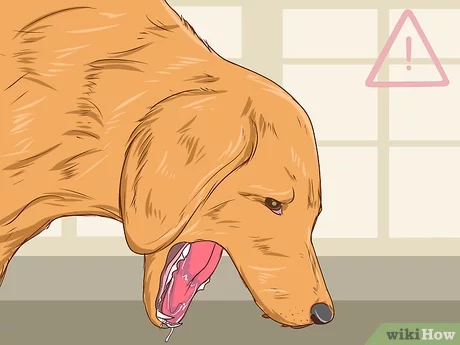Can Dogs Have Asthma
Dogs are known to be man’s best friend, but can they also suffer from asthma? This is a question that many pet owners ask themselves when they notice their furry companion struggling to breathe. Asthma is a chronic respiratory disease that affects humans, but can it also affect dogs? Let’s take a closer look.
What is Asthma?
Asthma is a condition that causes the airways in the lungs to become inflamed and narrow. This makes it difficult for air to flow in and out of the lungs, leading to symptoms such as wheezing, coughing, and shortness of breath. Asthma can be triggered by various factors, including allergies, exercise, cold air, and stress.
Can Dogs Have Asthma?
Yes, dogs can have asthma. However, it is not as common in dogs as it is in humans. In fact, only 1-5% of dogs are estimated to have asthma. The condition is more commonly referred to as “allergic bronchitis” or “canine bronchitis.”
Symptoms of Canine Asthma
The symptoms of canine asthma are similar to those seen in humans with asthma. These include:
– Wheezing
– Coughing
– Shortness of breath
– Rapid breathing
– Difficulty breathing
– Blue gums or tongue due to lack of oxygen
If you notice any of these symptoms in your dog, it is important to take them to the vet immediately for diagnosis and treatment.
Causes of Canine Asthma
The exact cause of canine asthma is unknown. However, it is believed to be related to allergies or environmental irritants. Common triggers include:
– Pollen
– Dust mites
– Mold spores
– Cigarette smoke
– Air pollution
– Exercise
Diagnosing Canine Asthma
To diagnose canine asthma, your vet will perform a physical exam and may recommend additional tests such as X-rays, blood tests, and bronchoscopy. Bronchoscopy involves inserting a small camera into the airways to look for signs of inflammation or other abnormalities.
Treatment for Canine Asthma
The treatment for canine asthma depends on the severity of the condition. Mild cases may be treated with lifestyle changes and medications such as bronchodilators or corticosteroids. More severe cases may require hospitalization and oxygen therapy.
Preventing Canine Asthma
Preventing canine asthma can be challenging, but there are some steps you can take to reduce your dog’s risk:
– Keep your home clean and free of dust and mold.
– Avoid exposing your dog to cigarette smoke or other air pollutants.
– Use an air purifier in your home.
– Keep your dog at a healthy weight through diet and exercise.
– Regularly visit your vet for check-ups.
Conclusion
In conclusion, dogs can have asthma, although it is not as common as in humans. The symptoms and causes of canine asthma are similar to those seen in humans, and treatment options include medications and lifestyle changes. If you suspect that your dog may have asthma, it is important to seek veterinary care immediately. By taking preventative measures, you can help reduce your dog’s risk of developing this respiratory condition. So, keep an eye on your furry friend’s health and happiness to ensure they live a long and healthy life!



